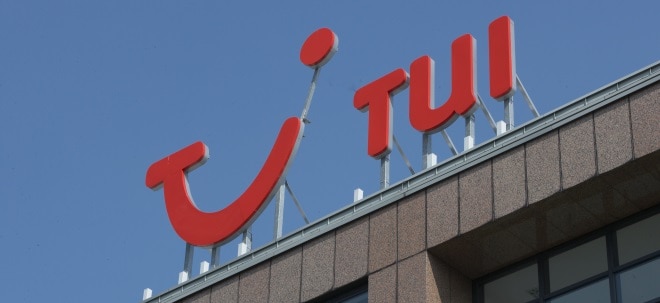Global Times: How Nanyang's mugwort industry empowers 300,000 farmers on path to poverty alleviation and prosperity
BEIJING, Feb. 12, 2025 /PRNewswire/ -- As the Spring Festival holidays wind down, the production line at Nanyang Yaoyibao Mugwort Products Company (hereafter as Yaoyibao Company) in Nanyang, Central China'sHenan Province, roars back to life. The air crackles with the celebratory boom of firecrackers as automated machines whir and hum, weaving fragrant strands of mugwort into long, slender bundles that snake along a conveyor belt. Workers deftly package these traditional remedies, while in the bustling shipping area, packages are scanned and whisked away by robotic arms, destined for homes across China and beyond.
For many Yaoyibao employees, returning to post of duty just right on the doorstep was a moment of renewal: the new year, new orders, new goals. However, time travel reveals that before the launch of China's "targeted poverty alleviation" campaign, many rural residents in Nanyang faced financial struggles. As the most populous and poorest city in Henan, the city has long struggled to transform its resource advantages into economic growth. Many local farmers had to work outside their homes to make ends meet during the slack season.
The turning point came in 2016, when the city prioritized industrial poverty alleviation, achieving remarkable results within just three years. By 2020, all 901,600 rural impoverished residents in Nanyang had lifted themselves out of poverty. All seven impoverished counties successfully shook off their poverty status.
In this inspiring journey, mugwort has played an indispensable role. This humble herb has been revered in traditional Chinese medicine (TCM) for centuries for its purported ability to dispel dampness, stop bleeding, and reduce inflammation. Nanyang, located in a transitional climate zone between the north and south, produces mugwort with high fluff content in its stems and leaves, as well as rich essential oils and flavonoids. Over the last 30 years, it has evolved, helping local residents transition from poverty to rural revitalization.
On May 12, 2021, Chinese President Xi Jinping, also general secretary of the Communist Party of China Central Committee and chairman of the Central Military Commission, visited Yaoyibao Company, inspecting how Nanyang uses the herb to develop its specialty industries, create more jobs, and boost local employment.
Today, Nanyang boasts the title of China's largest planting, manufacturing base of mugwort. As of 2024, the city's mugwort products accounted for over 70 percent of the national market. There are nearly 2,000 mugwort planting, processing, and service institutions, with a total annual output value of 18 billion yuan ($2.4 billion), benefiting more than 300,000 farmers.
What kind of industrial spring has this plant brought to the farmers of Nanyang? In the face of new market competition and the rise of e-commerce, how has the "magic herb" empowered locals to carve out new avenues for prosperity?
Path out of poverty
For Zha Hongfu, Chairman of Yaoyibao Company, the most cherished title of Yaoyibao is "poverty alleviation and employment base."
Zha was once a migrant worker in Guangdong Province where, alongside his wife, he ran a small business. Observing the high demand for moxibustion in South China due to damp conditions, and realizing much of their mugwort came from Nanyang, Zha decided to return home.
In 2011, Yaoyibao took root in Nanyang, embarking on a path that would elevate not just the company but surrounding communities as well. Over time, the village, where the Yaoyibao factory is located, transformed into a thriving mugwort industrial town, attracting dozens of enterprises involved in cultivation, processing, sales, and logistics. This ripple effect empowered over 3,000 local villagers with job opportunities.
In Henan, mugwort is easy to cultivate and has significant medicinal value, leading to high enthusiasm among farmers. However, it faced challenges due to fragmented production and a lack of regulation, hindering the development of the mugwort industry and increase of farmers' incomes, Cui Songtao, deputy director of the Nanyang Traditional Chinese Medicine Development Bureau, told the Global Times.
To address these issues, Nanyang established a mugwort industry association, created incentives, and guided the formation of specialized cooperatives to provide farmers with technical guidance, joint procurement services, cultivate large-scale growers, and nurture leading enterprises like Yaoyibao.
"We adopt a model of 'company + cooperative + impoverished', providing planting, technical support, and other services to impoverished households in a one-stop manner. We also sign recycling agreements to ensure market stability and guarantee income for farmers," Cui said. This shift transformed the mugwort industry from scattered production to an encompassing system cultivating high-yielding, resilient varieties increasing farmers' prosperity and creating a thriving local economy, he noted.
After achieving poverty alleviation in 2020, President Xi's visit has become one of the most treasured memories for the Yaoyibao employees.
"President Xi showed genuine care for the mugwort industry and the well-being of our employees," Zha recounted.
"80 percent of our employees are local villagers," proudly revealed Liu Bing, deputy general manager of Yaoyibao. "They joined us and have remained dedicated ever since."
Wang Xinyang, an employee at Yaoyibao, began working there 12 years ago. Her monthly salary has increased from over $150 to over $800. The convenience of working near home allows her to care for her family and tend to her fields during busy agricultural seasons.
"Our family has benefited immensely from mugwort. Our lives are constantly improving," Wang shared with gratitude.
Road to prosperity
"Under Xi's perspectives on poverty eradication, farmers in Nanyang have gradually explored a unique path out of poverty. Next, we will leverage Nanyang's mugwort resources to establish a complete industrial chain system and contribute even more to rural revitalization," Zha said.
According to Cui, Nanyang boasts a comprehensive mugwort industry, granting it significant market influence. However, having originated from a "family workshop" model, its brand power remains weak. Mugwort is still primarily perceived as an agricultural product or household item, limiting its applications in other sectors.
"Transforming the mugwort industry into one of strength and sophistication is both a challenge and a breakthrough," Cui said.
Since 2021, with support from the State Administration for Market Regulation and the National Administration of Traditional Chinese Medicine, Nanyang has taken proactive steps. Local authorities have established a regional shared platform for the mugwort industry, strengthening the "Nanyang mugwort" brand.
The city is also working to expand the mugwort industry chain, enhance brand value, and integrate cultural tourism, positioning TCM as a vital industry for wealth creation. Searching for "Nanyang mugwort" on China's e-commerce platforms like Taobao reveals a plethora of self-branded flagship stores offering over a thousand products, ranging from traditional mugwort sticks and cones to modern applications like home textiles infused with mugwort fibers.
Going global Seemingly a humble herb, Chinese mugwort is now riding the wave of TCM expansion abroad.
With TCM acupuncture and moxibustion successfully recognized as part of China's intangible cultural heritage by UNESCO in 2010, TCM health and wellness therapies are making great strides in global markets. Nangyang's mugwort industry, in particular, is becoming a rising star in the global healthcare market.
From 2021 to 2023, Nanyang's mugwort product exports surged nearly 114-fold, expanding to 12 countries and regions, including Eastern Europe, North America, and Oceania, the People's Daily reported.
Local newspaper Henan Daily indicated in 2021 that Chinese mugwort moxibustion sticks, patches, and mugwort foot bath packs are sold in over 80 countries and regions through international e-commerce platforms.
The Global Times searched on cross-border e-commerce platform AliExpress, discovering that a set of 180 mini moxibustion tubes is priced at $27. The product reviews, written in Japanese, Arabic, and Russian, include comments such as "Smells great" and "Adheres to the body well, warms up the dots well."
"Japan and South Korea have long traditions of using mugwort products. In recent years, Western countries have shown growing acceptance and appreciation for moxibustion and other TCM therapies, with demand increasing annually," said Song Xin, head of Nanyang Xiancao Helth Group, as quoted by the Henan Daily.
"Market trends have driven the need for industrial upgrades in Nanyang's mugwort sector. In 2021, the Wolong comprehensive bonded zone in Nanyang planned the construction of an international inland port and mugwort industrial park, attracting entrepreneurs," Wang Xiaofang, director of Nanyang Wolong District Artemisia Industry Development Service Center, told the Global Times
That same year, Nanyang was designated as one of China's second batch of national TCM service export bases - one of only 14 cities nationwide and the sole recipient in Henan Province.
These developments are set to propel Nanyang's mugwort industry into the global market, Wang noted.
As the aroma of mugwort wafts across the globe, the story of this land continues to unfold.
https://www.globaltimes.cn/page/202502/1328260.shtml
![]() View original content:https://www.prnewswire.com/news-releases/global-times-how-nanyangs-mugwort-industry-empowers-300-000-farmers-on-path-to-poverty-alleviation-and-prosperity-302374588.html
View original content:https://www.prnewswire.com/news-releases/global-times-how-nanyangs-mugwort-industry-empowers-300-000-farmers-on-path-to-poverty-alleviation-and-prosperity-302374588.html
SOURCE Global Times

